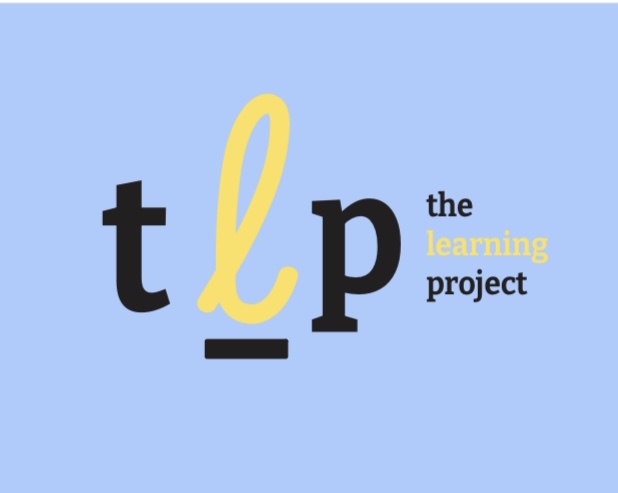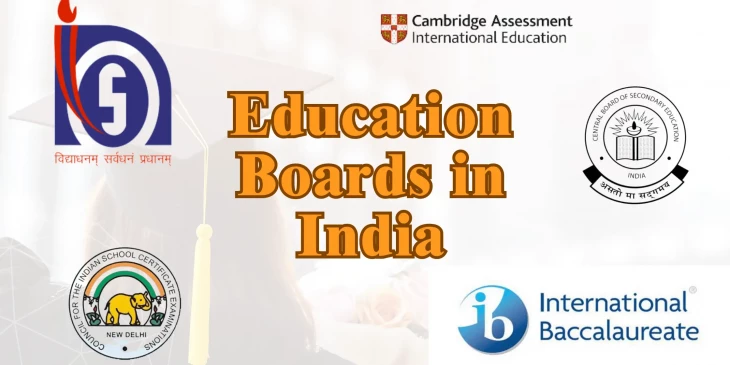India, known for its rich educational landscape, offers students a plethora of options when it comes to choosing their educational board. From the popular Central Board of Secondary Education (CBSE) and Indian Certificate of Secondary Education (ICSE) to state boards, international boards like the International Baccalaureate (IB), and Cambridge Assessment International Education (CAIE), each board brings its unique advantages and characteristics. In this comprehensive blog, we will delve into the various educational boards in India, highlighting their key features, curriculum, examination patterns, and the benefits they offer to students.
Central Board of Secondary Education (CBSE)
The CBSE is one of the most widely recognized educational boards in India, known for its centralized curriculum and national-level examinations. It follows a well-structured syllabus, emphasizing application-based learning. CBSE is one of the most popular boards in India and follows a centralized curriculum. It conducts the All India Secondary School Examination (AISSE) for Class 10 and the All India Senior School Certificate Examination (AISSCE) for Class 12. The CBSE curriculum provides a strong foundation for competitive exams and higher education, offering a wide range of subjects to choose from. Its standardized examination pattern prepares students for diverse evaluation methods.
Indian Certificate of Secondary Education (ICSE)
The ICSE board, conducted by the Council for the Indian School Certificate Examinations (CISCE), is renowned for its comprehensive curriculum that fosters analytical thinking and in-depth knowledge. ICSE is conducted by the Council for the Indian School Certificate Examinations (CISCE). It is known for its comprehensive curriculum and emphasizes analytical thinking. The ICSE examination is held at the end of Class 10.It offers a balanced mix of theoretical and practical subjects, encouraging holistic development. The ICSE examination at the end of Class 10 tests students' understanding and application skills.
State Boards
India's diverse states have their own boards of education, such as the Maharashtra State Board of Secondary and Higher Secondary Education (MSBSHSE), Tamil Nadu State Board, and Uttar Pradesh Board of Secondary Education (UPBSE). Each state in India has its own state board of education that conducts examinations for Class 10 and Class 12. Examples include the Maharashtra State Board of Secondary and Higher Secondary Education (MSBSHSE), Tamil Nadu State Board, Uttar Pradesh Board of Secondary Education (UPBSE), etc.State boards often incorporate local language, culture, and regional relevance into their curriculum. They provide students with a strong understanding of their state's specific context and offer flexibility in subject choices.
National Institute of Open Schooling (NIOS)
The NIOS is an autonomous board under the Ministry of Education, catering to students who cannot attend regular schools. NIOS is an autonomous board under the Ministry of Education. It provides education to students who are unable to attend regular schools and conducts examinations for secondary and senior secondary levels.It provides flexible learning opportunities through open and distance education, allowing students to study at their own pace. NIOS examinations for secondary and senior secondary levels are recognized by universities and provide equivalency with other boards.
International Baccalaureate (IB)
The IB board offers an internationally recognized curriculum and assessment system. It focuses on holistic education, encouraging students to become independent thinkers, problem solvers, and global citizens. The IB board offers international education programs for students aged 3 to 19. It has authorized schools in India that follow the IB curriculum and conduct IB examinations.IB programs are designed to develop well-rounded individuals with a strong emphasis on critical thinking, research skills, and community service.
Cambridge Assessment International Education (CAIE)
CAIE, commonly known as Cambridge International, offers a globally recognized curriculum and qualifications. Its programs, including Cambridge Primary, Cambridge Secondary, and Cambridge Advanced, provide a broad range of subjects and foster skills like critical thinking, collaboration, and effective communication. CAIE's rigorous assessment system ensures students develop a deep understanding of subjects.
Studying in different boards in India offers several advantages for students. Here are some of the benefits associated with studying in different educational boards:
Diverse Curriculum:
Different boards in India follow varied curricula, which allows students to choose a curriculum that aligns with their interests and learning style. For example, CBSE emphasizes a more application-based approach, while ICSE focuses on comprehensive understanding and analytical skills. This diversity in curriculum provides students with options to explore different subjects and teaching methodologies.
Flexibility in Subject Choices:
Different boards offer a wide range of subjects for students to choose from. This flexibility allows students to pursue their interests and strengths. For instance, some boards offer vocational subjects, arts, or additional languages, enabling students to have a well-rounded education and cater to their career aspirations.
Recognition and Universality:
The major educational boards in India, such as CBSE and ICSE, are recognized by universities and educational institutions across the country. This recognition ensures that students' qualifications are accepted when they apply for higher education or seek employment opportunities. Additionally, international boards like IB and Cambridge offer globally recognized certifications, expanding students' options for studying abroad.
Standardized Examinations:
Studying in different boards exposes students to diverse examination patterns and evaluation methods. This broadens their experience and prepares them to face various types of exams. It also enhances their adaptability and problem-solving skills, as they learn to navigate different examination formats.
Regional Relevance:
State boards are designed to cater to the specific needs and requirements of the respective state or region. They often incorporate local language and culture into the curriculum, ensuring that students develop a strong understanding of their regional context. This can be particularly advantageous for students planning to pursue higher education or seek employment opportunities within their state.
Personalized Learning:
Different boards may have variations in teaching methodologies, class sizes, and student-teacher ratios. This can create an environment that suits a student's individual learning needs. Some students may thrive in a more structured and disciplined approach, while others may benefit from a more personalized and interactive learning environment.It's important to note that the advantages of studying in different boards can vary depending on individual preferences, goals, and career aspirations. It is recommended for students and parents to carefully research and consider the specific features, curriculum, and opportunities offered by each board to make an informed decision based on their unique circumstances.
The choice between the International Baccalaureate (IB) and the Indian Certificate of Secondary Education (ICSE) boards depends on various factors and personal preferences. Both boards have their own distinct features and advantages.
The IB curriculum is internationally recognized and follows a holistic approach to education. It focuses on developing critical thinking skills, independent research, and global perspectives. The curriculum includes a wide range of subjects and encourages students to explore different areas of knowledge. IB schools often have a strong emphasis on inquiry-based learning, project work, and community service. The IB Diploma Programme is highly regarded by universities around the world.
On the other hand, the ICSE board is more specific to the Indian context and places emphasis on a comprehensive study of subjects. The curriculum is structured and covers a wide range of subjects, including languages, sciences, humanities, and mathematics. ICSE schools typically focus on a well-rounded education with equal importance given to academics, co-curricular activities, and character development.
When deciding between IB and ICSE, it is essential to consider your child's learning style, future educational goals, and personal preferences. Some factors to consider include:
Curriculum:
IB offers a broader range of subjects and a global perspective, while ICSE covers a comprehensive syllabus with a focus on Indian content.
Teaching Approach:
IB emphasizes inquiry-based learning and critical thinking, while ICSE provides a structured approach to education.
Assessment:
IB uses a combination of internal and external assessments, including coursework and examinations, while ICSE primarily relies on written examinations.
Recognition:
IB is recognized globally, which can be beneficial for students planning to study abroad. ICSE is well-regarded within India and may provide a smoother transition to Indian colleges and universities.
Future Goals:
Consider your child's aspirations for higher education and career. Research the requirements of universities or fields of interest to determine if one board is more aligned with those goals.It is important to note that both boards have their merits, and ultimately, the quality of education depends on the individual school and teachers. Visit schools, talk to parents, students, and educators associated with both boards to gather insights and make an informed decision based on your child's specific needs.
Conclusion
In a diverse country like India, the availability of different educational boards caters to the unique needs and preferences of students. Whether it is the centralized curriculum of CBSE, the comprehensive approach of ICSE, the regional relevance of state boards, or the global outlook of international boards, each board brings its own advantages, preparing students for diverse academic and career paths.Career Counseling can help you device your careerpath and help choose the right elective subjects according to your careergoal.



9 months ago
Very good blog giving information on the different education boards in India. Students can check the advantages of the different boards and choose a board depending on their career goals. Students coming from any of the boards can pursue higher education courses in India. All the boards are treated equally. More Info : https://studyinindia.gov.in/admission/studentsearch/stateswisecourses